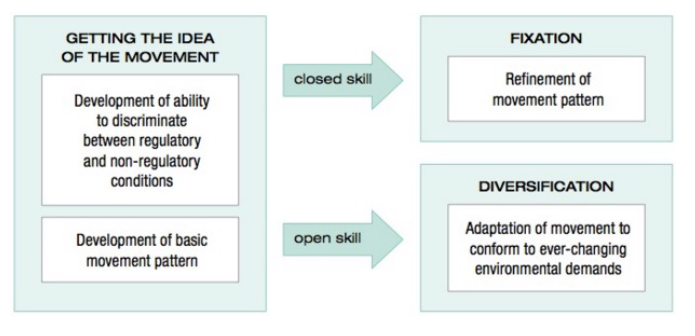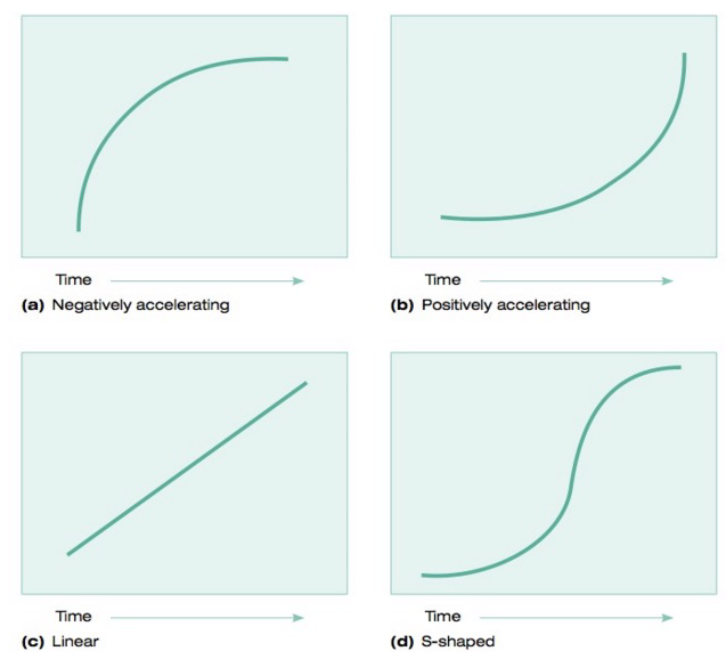Fitts and Postner’s model

Fitts and Postner’s model
Practitioner’s role: Cognitive
effective verbal instructions/demonstrations
Fitts and Postner’s model
Practitioner’s role: Associative
designing constructive practice experiences
Fitts and Postner’s model
Practitioner’s role: Autonomous
practice design, error detection/correction
Gentile’s Model

Gentile’s Model
• Practitioner’s role
– 1st stage:
communicate task’s goal using verbal instructions/demonstrations
Gentile’s Model
• Practitioner’s role
– 2nd stage: practice design reflection
practice design reflection
Gentile’s Model
Closed Skill
- Fixation: refinement of mvt pattern
Gentile’s Model
Open skill
- Diversification: adaptation of movement to conform to every-changing environmental demands
Changing Movement Patterns
• Increase in coordination and control
Beginners
freeze/fix movements, reduce degrees of freedom (DOF)
Changing Movement Patterns
• Increase in coordination and control
Experts
free movements, enable DOF
Changing Movement Patterns
fluid muscle activity
- Number of required muscles = reduces
- Timing and sequence of specific muscles
Changing Movement Patterns
Efficient energy expenditure
- Increase = mechanical efficiency
- Accuracy = muscle activation
Changing Movement Patterns
Increased consistency
- Correct performance of skill
- Must be aware of
consistent movement
- that is fundamentally FLAWED
Attention
• Skill execution
Initial Learners
- Focus on each technical component of skill
- Learn to let their actions become automatic
Attention
• Skill execution
Experts
- Focus on external things (e.g., game strategy)
- instead of skill progress
- Let movements happen naturally
Visual Attention
- Focus on information-rich cues,
- ignore non-regulatory conditions
Performance Changes
• Knowledge and memory
Procedural Knowledge
what to do in a situation
Performance Changes
• Knowledge and memory
Declarative Knowlege
rules
Performance Changes
- Knowledge and Memory
- Error Detection and correction
- Self-Confidence
Performance Changes
Error detection and correction
-
Make corrections
- during a movement
- or direct future attempts
Performance Changes
Self-confidence
- Increases motivation to improve
Performance Curves

- Negatively accelerating = often in beginners
Retention test

- Measures persistence of improved skill performance
Transfer test
- Measures how a learner can adapt
- a practiced skill to a different performance situation
Performance Plateaus
Period of time during learning in which no changes in performance occur
- Represent transitional periods of integrating task components
- Doesn’t mean learning isn’t happening
- Learning is not directly observable
- Thoughts, behavioral changes, neurological processes = can't be seen
- Fatigue, anxiety, motivation play a role